The spending review was quiet on HE and heavier on research spending commitments. A UUK publication tackles racial harassment in HE and the OIA provides examples of what will and won’t be upheld from student Covid complaints. We wonder about the TEF. See you in December!
Driving home for Christmas?
Today’s news is all about tiers. Dorset and BCP are in Tier 2 and we thought we would help you with the links. There are 3 sets of rules which all apply at once:
If you are hoping to see family or friends outside the local area, The full list is here. As has been widely reported, only Cornwall, the Isle of Wight and the Isles of Scilly are in tier 1, so cafes and pubs will be hard hit across the nation. The full reasoning area by area has been published.
And our local MPs are not all happy about it. The Bournemouth Echo have spoken to MPs
- Michael Tomlinson (MDNP) and Chris Loder (West Dorset) have just retweeted the guidance without comment and in the Echo article Michael Tomlinson says he will support the government.
- Sir Christopher Chope, Sir Robert Syms and Tobias Ellwood will oppose it.
- Simon Hoare will support the government.
- It is not clear from their piece whether Conor Burns will oppose it or not although he is critical.
Spending Review – highlights and research focus
Phew – that was a lot of bad news and attempts at good news. Headlines: no big announcements on university funding or progress on the TEF. Lots of research news and lots about investment in education.
The documents are here. Press release here. The full content of the Spending Review session is available on Hansard here.
RP makes interesting points on the forgotten aspects of impending HE policy which the (3 year) comprehensive spending review was expected to tackle. We cover the TEF separately below.
- The words ‘university’ and ‘universities’ do not appear. Nor does the term ‘higher education’.
- Add to this the fact that neither the independent review of the Teaching Excellence Framework nor the government’s response to the Augar review of post-18 education was published alongside the review as promised, and it starts to feel very much like a snub.
- A lot of water has passed under the bridge since then, and it is safe to say—as Fiona McIntyre reports on our site—that the no-show of the TEF and Augar was no surprise. They’ve been kicked so far into the long grass now that they can barely be seen. And with rumours of a Lord Agnew-led Treasury review of higher education costs, Augar’s recommendations—some of which Augar has all but disowned himself—seem more likely to become footnotes in whatever plan eventually befalls university financing.
On the spending review Wonkhe say:
- Yesterday’s spending review left key questions over tuition fees and teaching funding for the sector unanswered, though there was limited good news on research funding. An overall £740m uplift in the BEIS research and development budget included promised increases in funding flowing through UK Research and Innovation (UKRI) over the next four years. And it now appears that the ARPA-like “high-risk, high-payoff” research funding long seen as a Dominic Cummings’s pet project will also sit under UKRI.
- There was plentiful recurrent and capital funding allocated to FE, in line with previous announcements, but there was little mention of the HE sector. The Student Loans Company will receive an extra £64m of capital linked to a transformation programme, and there’s an unspecified amount of funding (if required) to support the preparation of a domestic alternative to Erasmus+.
- Other points of interest included the news that the promised phasing out of the RPI inflationary measure (as used in student loan interest calculations) will not begin until 2030, and an odd mention of “defending free speech” in the Chancellor’s statement. David Kernohan summarised what we could find on Wonk Corner
We cover the R&D sections here and the rest in a separate section below. In the main document the scientific super power section starts page 58.
Research Professional have a good summary in A game of two halves.
- The headline figure, as Sophie Inge reports, was a pledge of “almost £15 billion for R&D over the next year” with the aim of making the UK a “scientific superpower”.
- …. the Department for Business, Energy and Industrial Strategy has been awarded £11.1bn in R&D funding for the year ahead, which is up from £10.36bn this year and includes a boost of £400m a year, on average, until 2023-24 for core UK Research and Innovation budgets.
- It is notable that the chancellor—who had abandoned plans for a full multi-year spending review following the Covid-19 pandemic outbreak—opted to make a four-year commitment to funding research. The argument that R&D is now simply too important to the future physical and economic health of the country to be managed on a short-term basis appears to have won. UKRI chief executive Ottoline Leyser summed it up, saying the spending review “signals a clear national ambition for research and innovation”.
- Another £350m went to UKRI to support “strategic government priorities, build new science capability and support the whole research and innovation ecosystem”. This chunk of cash includes the “first £50m towards an £800m investment by 2024-25 in high-risk, high-payoff research”—which seems like a very strong hint indeed that any cash going to the UK Advanced Research Projects Agency will be distributed via UKRI.
- The business department’s settlement includes a healthy £733m to allow the UK Vaccine Taskforce to purchase Covid-19 vaccines, which is part of the £6bn provided to procure vaccines. Of this money, £128m will go towards UK vaccine R&D and funding for the Vaccines Manufacturing and Innovation Centre.
- Meanwhile, there will be up to £17m in 2021-22 to establish a “new unit and fund that will focus on the last mile of innovation to help ensure that public sector knowledge assets…translate into new high-tech jobs, businesses and economic growth”. These assets include R&D, the spending review document states, along with intellectual property and other intangible assets.
Dods have a nice summary of the research announcements
- Cement the UK’s status as a global leader in science and innovation by investing nearly £15 billion in R&D in 2021-22 (page 53)
- Up to £17m in 2021-22 to establish a new unit and fund that will focus on the last mile of innovation to help ensure that public sector knowledge assets (page 53)
- £450m in 2021-22 to support government priorities, drive the development of innovative ways to build new science capability and support the whole research and innovation ecosystem (page 54)
- Raise economy-wide investment in R&D to 2.4 per cent by 2027 (page 54)
- £280 million in 2021-22 for net zero R&D, including an £81 million multi-year commitment for pioneering hydrogen heating trials (page 56)
- £695m of additional R&D funding between 2021-22 and 2024-25 to support the development of cutting-edge capabilities (page 56)
Other research news
- Wonkhe have a new blog – The proportion of PGR students recorded as “writing up” in HESA data has been creeping up over the years. Is this a sign of a growing crisis? We don’t know, and that is the problem. Rebecca Teague and Billy Bryan take stock.
- HEPI have a new blog which comments on the rise in numbers of PhDs but it also asks who and what are PhD’s for and references the recent Government and UKRI decisions on PhDs extensions as telling.
- If you somehow managed to miss last week’s clamour – doctoral students were told to adjust projects for Covid-19. UKRI announced an additional £19m available to support doctoral students who are finding it most difficult to adjust their project and training plans. There is a report and policy statement advising students to speak to their supervisor about adjusting projects to complete a doctoral-level qualification within their funding period. And an interesting fact on the scale of the issue – 92% of final year students already requested an extension, with the average extension request of 4.6 months. Research Professional reported the announcement received a negative reaction from doctoral students, particularly around the lack of clarity it brought We’re still waiting to hear what involvement BEIS had in the UKRI decision.
This week’s parliamentary questions:
Forgotten Priorities Part 1: What is going to happen to the TEF?
Everyone expected that announcements on the Pearce review of the TEF and announcements on the Review of Post-18 Education and Funding – promised with the spending review – would not be forthcoming, once it was announced that it would not be a “comprehensive” spending review but a one year look, with a focus on the response to the pandemic. Then there were rumours that there might be after all- but there wasn’t. Universities and HE are not mentioned at all, although there is a fair bit about research (as we discuss elsewhere).
So what is the situation with the TEF? The current awards were all extended to 2021. The OfS announced in January 2020 that they would not run a TEF exercise this year. But what is going to happen when those existing awards run out at the end of this academic year? It’s all a far cry from September 2019 when the Secretary of State was encouraging the OfS to get on with things and run an extra TEF in 2020. And read this on Research Professional from February 2020 (BP – before pandemic).
Meanwhile, the OfS are advertising for a Head of TEF (closes early December). So something must be going to happen?
The OfS website says:
- The new framework will take account of the forthcoming recommendations in Dame Shirley Pearce’s independent review of the TEF, the government’s response to it, and the findings of the latest subject-level TEF pilot.
- Following these publications, we will consult on the new framework.
- All assessments under the current TEF scheme have concluded, and the results will be replaced in the future by results from the new scheme. We will not conduct a TEF Year 5 exercise in 2020.
This is a bit confusing. There is no TEF year 5 exercise in 2020, but what in that case will replace it when the awards run out in summer 2021? Will there be a gap? Or will the existing awards be extended again – at which time the year two awards given in Spring 2017 based on data from the three previous years start to seem a bit long in the tooth.
The documents published (in 2018) for the last subject level pilot said:
- The final provider-level exercise with published outcomes (TEF Year Four) will take place in 2018-19 and will operate completely independently from the subject-level pilots.
- So that subject-level TEF produces comprehensive outcomes to inform student choice, the DfE has decided that published awards from provider-level TEF Years Two, Three and Four should no longer be valid when subject-level TEF awards are published in 2021.
- At that point, all awards from provider-level TEF will expire, and be replaced by awards made through the first full subject-level TEF exercise (these awards will be at both provider and subject levels).
- .. Up to now, each TEF exercise has been completed within a single academic year. However, given the scale of the first full subject-level TEF exercise, it will be conducted across two academic years, 2019-20 and 2020-21, to enable it to produce robust outcomes. This will ensure additional time for providers to make submissions and for panels to conduct the assessments.
- We expect the application window to open in early 2020, and to publish the outcomes in spring 2021. This will also allow more time for the findings of the second pilot and the independent review to be fully considered before moving to full implementation.
So it certainly looks like there will have to be an extension. And if the new exercise really is going to take two years, it will be quite a long extension – because with the Pearce review not released, and the NSS consultations ongoing, they won’t be able to start a consultation on what the new TEF looks like until 2021. The earliest surely is that we start preparing responses in summer or autumn 2021 – and with a nearly two-year period for preparation, submission wouldn’t be before spring 2023? With outcomes in summer 2023 at the earliest? That’s another two-year extension.
Two alternatives – just let them expire and have a gap, blaming COVID. Or, run a much quicker exercise in 2021 with a view to getting results out in late 2021 or early 2022 (with a short extension in that case). This is certainly possible. Could we get an announcement and consultation straight after the quality one, in March, say, with preparation to do from July, submission in October/November, results in January 22? Institutional only with subject level to follow during 2022 building on the institutional and then next round in 2025?
And what do we know about what it might look like when it does come out?
- There is a good chance that the NSS won’t be included any more – to be replaced by some narrative in the submissions about how each university has engaged with the student voice and how we are sure that we have mechanisms in place and have identified and addressed any concerns about student experience?
- What about the Royal Society of Statistics: Ultimately, the RSS judges it to be wrong to present a provider/subject as Gold/Silver/Bronze without communication of the level of uncertainty. The current TEF presentation of provider/subjects as Gold, Silver, Bronze conveys a robustness that is illusory. A prospective student might choose a TEF Silver subject at one provider instead of a TEF Bronze at another institution. If they had been told that, statistically, the awards are indistinguishable, then their choice might have been different and, in that sense, TEF is misleading. The uncertainty is likely to be higher for subject-level assessment than for provider-level assessment….
- We know from the recent consultation document (covered last week) that continuation/completion and employment outcomes will still be important – as they were in the last pilot (TEF 2019 subject level TEF pilot guide)
- Will they get rid of the gold/silver/bronze institutional labels? They have little meaning now that hardly anyone is bronze, after the TEF’s own structure led to rampant grade inflation. The OfS had indicated potentially moving away from the annual grading to a less frequent one to address that problem. But maybe the labels themselves are now devalued?
- We know that it is unlikely that subject level assessment will be abandoned. But how will they label subject level awards? Jim Dickinson on Wonkhe: 5/3/19: – but how on earth would students interpret a Bronze course at a Gold institution when the latter uses almost the same metrics, only less specific to your course? You could argue that both should exist, but with completely separate metrics – but given there’s no magic blueprint for what is devolved to academic departments and what’s run centrally, that won’t work either.
- We know from the quality consultation document that the TEF will expect performance above the new outcomes baselines. The original TEF was based on benchmarks and relative performance not absolute levels. They may abandon or change benchmarks completely. If that is the approach for baselines, will you have a different approach for measures of excellence? There was a flirtation with absolute values in the pilot schemes, as you may recall, which was said at the time to be a nod towards Russell Group universities who performed well in absolute terms but not so well when benchmarked against others with similar student demographics.
- They may not use all the data splits in a new TEF, or at least not at subject level. The consultation on quality and standards proposes using the demographic splits (gender, ethnicity, social background etc) only at an institutional not at a subject level, and recognises that there is an existing mechanism to manage these via the APP. So presumably the data will not be split along these lines for the TEF at subject level either. Rather than have us all look at all this again, perhaps a new TEF, with an eye on reducing bureaucracy, will just have “meeting (most or all of) your APP targets” as a threshold for application or for an award at a certain level?
- Will they have listened to any of the grumbling about subject level definitions? Jim Dickinson on Wonkhe: 5/3/19: You could pursue subject level on its own, but the more you look at benchmarking, and statistical significance, and the basket of measures’ relevance to all courses (let alone its relevance to all students), the more you think the hassle outweighs the effort – not least because newspapers do a better job at remixing the metrics than you do. And then it dawns on you that some academic departments in some universities will straddle your subject groupings, and you’ll realise that there isn’t the room in their school office, their messaging or their accountability systems for all three medals to apply to that school all at once.
RP makes interesting points on the forgotten aspects of impending HE policy which the (3 year) comprehensive spending review was expected to tackle.
- …it is safe to say—as Fiona McIntyre reports on our site—that the no-show of the TEF and Augar was no surprise. They’ve been kicked so far into the long grass now that they can barely be seen. …
- As for the TEF, it simply doesn’t have the political capital with the general public for the government to hurry its publication. The review was mandated in the Higher Education and Research Act 2017 but the publication of its findings was not, which has given the government infinite wiggle room that it continues to exploit.
So what is going to happen? We don’t know. And we don’t know when we will know. But we know it will be a lot of work when we do know!
Racial Harassment
On Tuesday UUK published new guidance on tackling racial harassment in HE, and executive summary here.
The context: The 2019 Equalities and Human Rights Commission report ‘Tackling racial harassment: universities challenged‘ highlighted the prevalence of racial harassment within HEIs. Events of 2020, including the Covid-19 pandemic and the increased prominence of the Black Lives Matter movement, brought to the fore the extent of racial inequality in the UK and reinforced the urgency to act.
UUK build on their Changing the culture framework in the new guidance. There is a focus on strong leadership and a whole-institution approach, as well as engaging with staff and students with lived experience of racial harassment. UUK call on the sector to hold open discussions on race and racism, to educate staff and students and make clear that tackling racism and racial harassment is everybody’s responsibility. The guidance asks university leaders to acknowledge where there are issues in their institutions, and that UK higher education perpetuates institutional racism. It cites racial harassment, a lack of diversity among senior leaders, the Black, Asian and Minority Ethnic student attainment gap and ethnicity pay gaps among staff as evidence.
The guidance also showcases emerging practice from HEIs making good progress in tackling racial harassment.
Recommendations include:
- Publicly commit priority status to tackling racial harassment
- Engage directly with students and staff with lived experience of racial harassment
- Review current policies and procedures and develop new institution-wide strategies for tackling racial harassment
- Improve awareness and understanding of racism, racial harassment, white privilege and microaggressions among all staff and students, including through anti-racist training
- Ensure expected behaviours for online behaviour are clearly communicated to students and staff, as well as sanctions for breaches
- Develop and introduce reporting systems for incidents of racial harassment
- Collect data on reports of incidents and share regularly with senior staff and governing bodies
OfS – value for money
OfS has reported against key performance measure 19 which looks at students’ perceptions of value for money from their university education. 37.5% of undergraduates and 45.3% of postgraduates stated it did provide value for money when considering the costs and benefits.
OfS also published their Value for money annual report on how they have managed the funds they were allocated. They are still working on plans as to how they’ll reduce the registration fee for HE providers by 10% over the next two years.
Free Speech
The Lords Communication and Digital Select Committee inquiry into Freedom of Expression Online received evidence this week. There were some interesting points raised within the topics of free speech online Vs offline, public attitudes, protected characteristics, the narrowing impact of algorithm use and the role of the state in regulating. Platform moderation and take down rules on social media sites were also discussed. Dods provide a summary of the discussion here.
Sport
The British Universities & Colleges Sport (BUCS) launched The Value of University Sport and Physical Activity: Position Statement and Evidence highlighting the role which sport plays within the student experience. It includes a focus on how sport contributes to students’ physical and mental wellbeing. The report itself divides into six key strategic drivers for universities – recruitment, transitions and retention, health and wellbeing, graduate attainment, graduate employability, and the civic and global agendas – outlining how sport contributes to positive outcomes in each.
And on graduate employment: Whilst graduates also earned more than non-graduates, those who took part in sport earned a higher salary irrespective of educational level, thus showing a positive correlation between sport and earnings that cannot be explained by level of education.
The authors state the report is a ‘call to action’ for universities to review how they position sport and physical activity; especially at this time when students are isolated and anxious, and universities are concerned about the retention of students with the current restrictions.
There was a relevant parliamentary question on university sport this week outlining what is and isn’t permissible during Covid.
Access & Participation
The Commons Education Committee continued their inquiry into the educational outcomes of white working-class pupils. Dods have summarised the session here.
This parliamentary question on DSA paperwork/online applications clarifies the pre-population of information and that help is available by phone if the student’s disability causes difficulty in completing the paperwork.
Wonkhe report: A report from Civitas argues that a belief has developed around the university system that students from ethnic minorities are likely to underperform academically, and that the available data does not back this assertion up. Report author Ruth Mieschbuehler calls for a reexamination of the practice of disaggregating student data by ethnicity
The Sutton Trust has scoped how leading universities in different countries are addressing inequalities in access for those from low income and other marginalised backgrounds in Room at the top: Access and success at leading universities around the world. The report looks at the issues based on five themes:
- Actions and commitment at the strategic and institutional level
- Financial support for low-income/marginalised group students
- Non-financial support at the pre higher education level (outreach)
- Support to enable student success
- The role of national/regional policies
The recommendations (they call them key messages) are on pages 5& 6 of the document.
Unpaid student placements
Placements are big at BU. Every undergraduate honours student is offered the opportunity to undertake a work placement as part of their course and BU has an excellent reputation nationally and internationally for the quality of the placement opportunities. Covid has been a significant disrupter to students on placement. Internships were cancelled in some sectors and for some of those that were able to move to remote and online versions the richness of the face to face placement experience elements were curtailed. Pre-Covid individual parliamentarians regularly flirted with the notion that everyone on a work experience opportunity of over 4 weeks should be considered a worker, and therefore paid for the work they undertake. This would make a significant difference to students undertaking the traditional sandwich year, yet the impetus for this change has stalled. This week Sarah wrote for Wonkhe to continue to argue the case for students to be paid. The blog also suggests alternatives which employers could offer to reduce the financial pressures on students when they are offered an unpaid placement.
SEND
Children and Families Minister Vicky Ford spoke during the APPG for Assistive Technology launch event for their new research aiming to bridge the gap between education and employment for young people with SEND. The Minister praised schools, colleges and the technology sector for their response to the ‘historic challenges’ during the Covid-19 pandemic, especially for vulnerable students with the most complex needs, but urged companies to make sure all their products and practices are fully inclusive.
She said: Assistive technology can be life-changing and for many it is vital to communication, learning and overall independence…In recent months, the importance of Assistive Technology has been demonstrated like never before. The essential collaboration provided by groups such as this APPG is vital to ensure that we make policy which is informed by as much research and evidence as possible…Our review will give schools and colleges a helping hand by providing greater transparency in what tools and interventions can improve outcomes of SEND students and bridge the gap from education into employment. It will also support the technology sector in embedding accessibility features – such as text to voice tools – as part of their service development, and policymakers to better embed inclusion into their policies and services. This will lead to real, meaningful differences in the quality of education for children and young people…This is key, because we need to be clear: accessibility should never be an add on, it should be the norm.
Dovetailing the event the DfE released a series of rapid literature review reports on assistive technology in educational settings. The reports summarise the evidence on assistive technologies use and outcomes in education and cover when, where and for whom assistive technology works. The report are split by policymakers, administrators, educators, researchers and developers of assistive technologies and products.
Student Complaints – case studies
The Office of the Independent Adjudicator for HE (OIA) has published case summaries of complaints arising from the impact of Covid-19 on their HE learning and experience. So far the OIA have received nearly 200 complaints from C-19 disruption..
Wonkhe say:
- While the OIA does not underestimate the challenge of sustaining teaching during the pandemic, “some providers have done more than others to mitigate disruptions to students’ learning opportunities.”
- Where universities have rescheduled missed teaching, or made a broadly equivalent alternative available, or where students have been unable to cite a specific academic or material disadvantage, complaints have not been upheld. However, where universities have failed to engage properly with students’ concerns, or relied on too broad exclusion clauses in student contracts, complaints have been justified or partly justified.
2021 GCSE & A/AS level Exams
The Joint Council on Qualifications have announced that, following consultation with schools and colleges, the final level 2 and 3 exams timetables are confirmed. The compulsory education sector are still waiting for further information on how the Government intends to facilitate Covid-safe exams, and what ‘Plan B’ will consist of. The announcement demonstrates the Government’s determination for the exams to take place in England during summer 2021. This is expected new as Monday’s Covid Winter Plan announcements mentioned their commitment to a ‘full set of exams’ in England.
Meanwhile, YouGov have an interesting series of polls on exams – see our polls special here.
Finally, Ofqual published a new research paper on the Sawtooth Effect. The Sawtooth Effect is the pattern in student performance that can be seen when assessments, such as GCSEs and A levels, are reformed. Performance tends to dip, then improves over time as students and teachers become more familiar with the new content and the new assessments. Research by Ofqual in 2016 highlighted this post-reform effect, and enabled mitigation to level out fairness for students. This week’s release covers the impact of Covid-19 on student performance. The research suggests the same methods could be used to ensure fairness during the pandemic. Wonkhe review the Sawtooth paper (worth a read) and also manage to mention why predicted grades are useful too.
Participation in Education
The DfE have released the latest participation in education statistics. Summary also covering FE and apprenticeships here. DfE HE statistics
- 9% of 17-30 year olds enter HE
- 41% of 18 and 19 year olds
- 1% females, 45.1% males (by age 30)
- 9% entering to do full-time study
- 0% to do part-time study (only 1.5% 18-19 year olds study part time)
- Learning intention (undergraduate):
- Full degree (46.6%)
- Foundation Degree (2%)
- HNDs/HNCs (1.8%)
- other undergraduate quals (1.4%)
- 8% aged 17-30 enter postgraduate study
International
- Wonkhe report: New researchfrom QS, covering 887 prospective international students found that nearly a quarter felt that the introduction of a potential Covid-19 vaccine made them consider starting their studies earlier than planned. 43 percent said that the vaccine news had made no difference to their plans.
- Also a parliamentary question – Student visas are not a route to settlement
Spending Review – the rest
Research Professional on Erasmus:
- ….the Treasury did reveal that its settlement with the Department for Education “provides funding to prepare for a UK-wide domestic alternative to Erasmus+, in the event the UK no longer participates in Erasmus+, to fund outward global education mobilities”.
- This seems good, on the face of it, since any alternative scheme will need money. However, Erasmus’s main purpose is to provide student exchanges—and by definition, any effective exchange requires not only the outward movement of students from the UK (which is covered in the spending review costing) but also the inward movement of students to the UK (which it seems is not).
- “Budgeting to replace Erasmus+ for outward students only is disappointing, if predictable, and is clearly inferior to full association,” Daniel Zeichner, Labour MP for Cambridge and co-chair of the All-Party Parliamentary Group for Universities, told Playbook last night.
Dods have a nice summary of the announcements which we’re re-ordered and edited
International
- Provides funding to prepare for a UK-wide domestic alternative to Erasmus+ in the event that the UK no longer participates in Erasmus+ (page 63)
- Further financial support will be provided to the British Council to reform and invest (page 70)
Student loans
- £64m for the Student Loan Company, including for its transformation programme (page 63) [this is mainly to help them prepare for providing student loans to FE students and adult learners]
Technical education
- £291m for Further Education in 2021-22, in addition to the £400m that the government provided at SR19 (page 62)
- Investing £375m from the National Skills Fund in 2021-22 (page 62) including:
- £138m to fund in-demand technical courses for adults, equivalent to A level, and to expand employer-led bootcamp training model
- £127m to build on Plan for Jobs, fund traineeships, sector-based work academy placements and the National Careers Service
- £110m to drive up higher technical provision in support of the future rollout of a Flexible Loan Entitlement
- £162m to support the rollout of T Levels waves 2 and 3 (page 63)
- £72m to support the commitment to build 20 Institutes of Technology (page 63)
- Almost £100m to deliver the National Citizen Service (NCS) and invest in youth facilities. The government will review its programmes to support youth services including the NCS in the spring (p81)
- £2bn Kickstart Scheme to create hundreds of thousands of new, fully-subsidised jobs for young people across the country. This settlement confirms funding for over 250,000 Kickstart jobs (p85)
Apprenticeships
- Confirm changes to support employers offering apprenticeships by delivering further improvements to the system (page 45)
- Made available £2.5bn of funding for apprenticeships and further improvements for employers (page 62)
Department for Education
- A £2.9bn cash increase in core resource funding from 2020-21 to 2021-22, delivering a 3.2 per cent average real terms increase per year since 2019-20 (page 62)
- The department’s capital budget increases by £0.5bn in cash terms next year, taking core total DEL to £76.4bn (page 62)
Pre-Spending Review this is what was MillionPlus asked for (but didn’t get):
- Introduce a maintenance grant of up to £10k for all students in England to encourage them to train in key public services subjects
- Invest in high quality placements in NHS, social work and teaching
- Offer loan forgiveness for those remaining in relevant professions for at least 5 years
- Establish a new Public Services in Higher Education Capital fund to support universities in England and partners to invest in high quality simulation equipment and other vital infrastructure
- Create a new professional development programme to underpin the NHS volunteer reserve force in England
- Increase skills and expertise by enabling individuals in England to access loan support for short courses and modules at levels 4 and 5
- Place employers in England at the centre of apprenticeships policy and encourage them to partner with universities to support regional skills development and productivity growth
There’s more detail on specific areas in the links below:
- Dods summarise all areas of the spending review with the key announcements in bullet points.
- National Infrastructure Summary, full strategy here. The full strategy is high level (yet still 100 pages long). There is very little on the specifics of research investment, just lists of priorities, no mention of universities.
Teaching Tech
Jisc published the Teaching staff digital experience insights survey 2020, They report that 79% intend to use technology in their teaching.
- 95% of teaching staff have a positive attitude to using technology
- 79% are motivated to use it in their teaching
- Only 20% said their organisation had offered support to them in using new technologies
- 37% of teaching staff had worked online with learners during the survey period, and 43% had created online teaching materials to adapt to the situation
- When asked what more their organisation could do to improve the quality of digital teaching and learning, staff cited
- Training and CPD (33%)
- Software, infrastructure and systems (31%)
- Organisational culture (13%)
- 68% of respondents said they’d had support to develop their basic IT skills
- Only 14% reported having time to explore new digital tools, and only 7% spoke of receiving reward and recognition for the digital skills they developed
- 29% stated their organisation provided guidance about the digital skills needed in their job role
Retraining by sector
Also within our polls special are the YouGov surveys on retraining for workers disrupted by Covid-19. There are views on whether the Government should be encouraging retraining and new careers – the national hasn’t forgotten the ballet/cyber retraining advert yet but it hasn’t had the negative effect that might be expected! Plus specific indicators show the popularity of industry’s skills gap areas (look out for cyber!).
Covid Parliamentary Questions
Inquiries and Consultations
Click here to view the updated inquiries and consultation tracker. Email us on policy@bournemouth.ac.uk if you’d like to contribute to any of the current consultations.
Other news
Bias in HE: Wonkhe report that Advance HE has published the first in a new series of literature reviews on bias in higher education. The review tackles bias in assessment and marking, bringing together literature on the topic and current good practice among universities. The next in the series – covering bias in the curriculum and pedagogy and bias in decision making – will be published next year
Online end assessment: Wonkhe have a blog on online digital assessment as an alternative to taking exams in person.
Alumni: BU’s own Fiona Cownie writes for Wonkhe on how alumni may be key in building a student community during the pandemic
Medical: Wonkhe tell us that The Medical Research Council has published a review of its units and centres portfolio. The report has identified research areas where MRC investment could have a significant impact, including the development of new tools and technologies, interventional approaches to population health, and research into health needs from anthropogenic effects such as urbanisation or climate change.
LEP: Cecilia Bufton has been confirmed as the new Chair of the Dorset Local Enterprise Partnership from 1 December 2020.
Degree apprenticeships: Sums consulting have a blog on degree apprenticeships: Understanding the Apprentice Lifecycle in Universities.
- Apprentices are not standard learners; there are material differences in terms of the application process, progression, breaks in learning and withdrawals, data reporting and the amount of time spent working, learning, and training. Apprenticeships are not standard programmes; there are material differences in terms of the adherence to standards, the endpoint, cash flow, audit, and risk profiles.
- The success or failure of any individual apprentice will be down to a three- or four-way relationship between the apprentice, their employer, the main provider, and any sub-contracted training provider.
The blog also advertises their services in this area.
Subscribe!
To subscribe to the weekly policy update simply email policy@bournemouth.ac.uk. A BU email address is required to subscribe.
External readers: Thank you to our external readers who enjoy our policy updates. Not all our content is accessible to external readers, but you can continue to read our updates which omit the restricted content on the policy pages of the BU Research Blog – here’s the link.
Did you know? You can catch up on previous versions of the policy update on BU’s intranet pages here. Some links require access to a BU account- BU staff not able to click through to an external link should contact eresourceshelp@bournemouth.ac.uk for further assistance.
JANE FORSTER | SARAH CARTER
VC’s Policy Advisor Policy & Public Affairs Officer
Follow: @PolicyBU on Twitter | policy@bournemouth.ac.uk
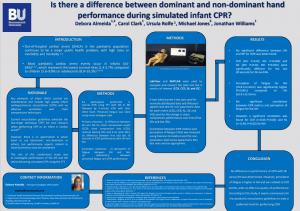
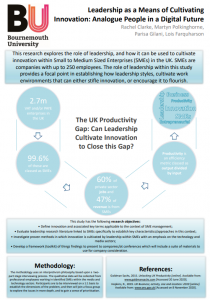

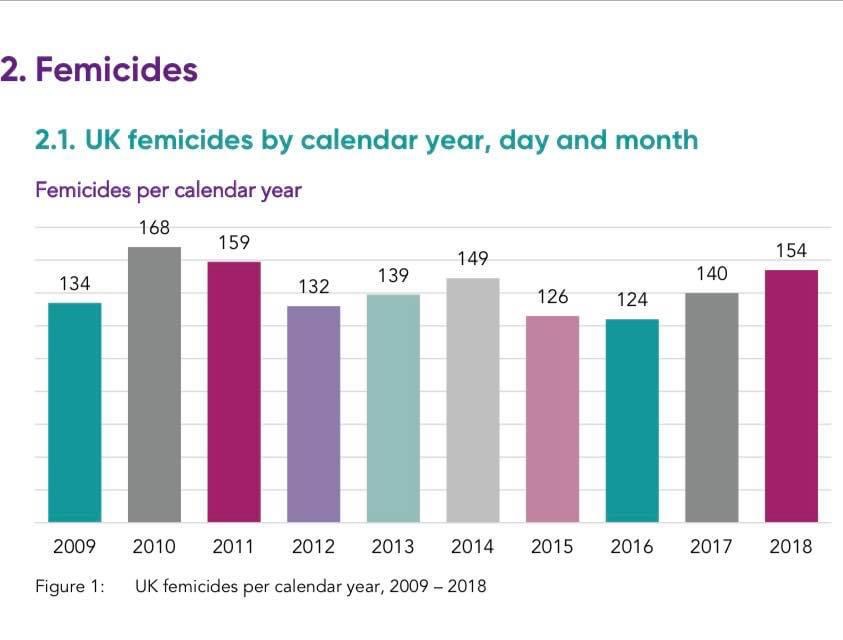
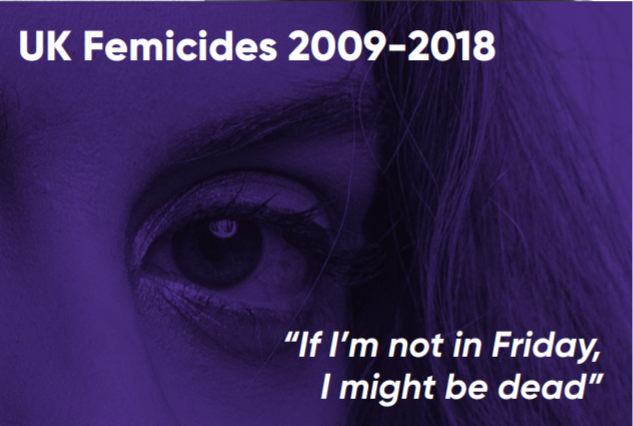

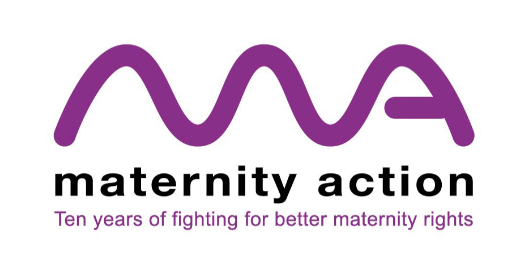 I attended a zoom meeting on the 25/11/20 hosted by Maternity Action (MA), which is the UK’s leading charity committed to ending inequality and improving the health and wellbeing of pregnant women, partners and young children – from conception through to the child’s early years. Part of their remit is the delivery of free, specialist advice through their telephone helplines, on employment rights, maternity pay and benefits. Maternity Action responds to 2,000 calls to their Maternity Rights Advice Line each year from women facing pregnancy discrimination at work or needing help understanding their employment rights. Shockingly, pregnant women or new mums experience high levels of discrimination and harassment, with circa 54,000 women losing their jobs each year as a direct result of pregnancy discrimination. One in 20 new mothers are made redundant during pregnancy, maternity leave or on their return to work.
I attended a zoom meeting on the 25/11/20 hosted by Maternity Action (MA), which is the UK’s leading charity committed to ending inequality and improving the health and wellbeing of pregnant women, partners and young children – from conception through to the child’s early years. Part of their remit is the delivery of free, specialist advice through their telephone helplines, on employment rights, maternity pay and benefits. Maternity Action responds to 2,000 calls to their Maternity Rights Advice Line each year from women facing pregnancy discrimination at work or needing help understanding their employment rights. Shockingly, pregnant women or new mums experience high levels of discrimination and harassment, with circa 54,000 women losing their jobs each year as a direct result of pregnancy discrimination. One in 20 new mothers are made redundant during pregnancy, maternity leave or on their return to work.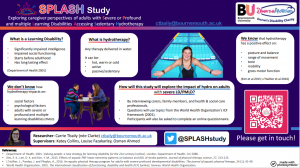
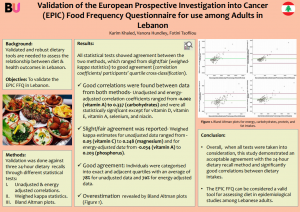
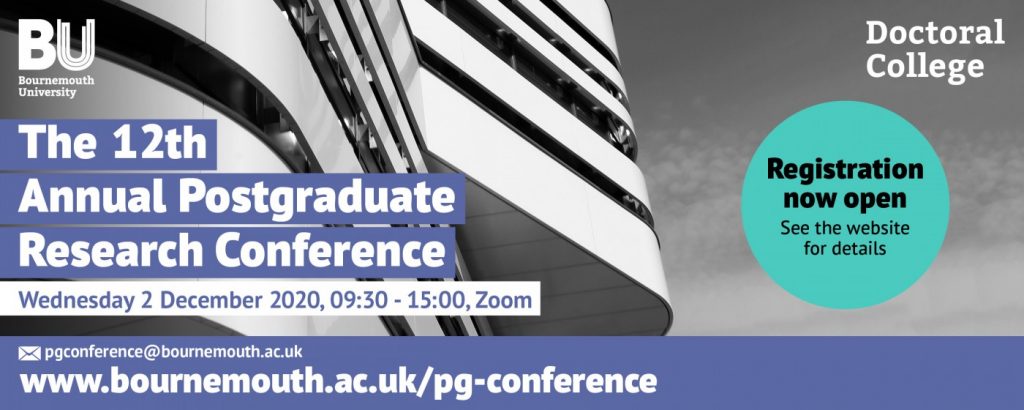
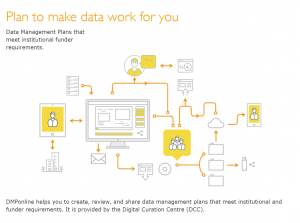
 UK Research and Innovation (UKRI) has developed a new feature in its current funding systems to recognise formally the contributions of UKRI reviewers via ORCID, a unique identifier tool for individuals.
UK Research and Innovation (UKRI) has developed a new feature in its current funding systems to recognise formally the contributions of UKRI reviewers via ORCID, a unique identifier tool for individuals.

 RDS have worked with Faculty DDRPPs to ensure greater transparency around the recent changes to the bidding approval process, and to ensure that research remains a key activity for our academics.
RDS have worked with Faculty DDRPPs to ensure greater transparency around the recent changes to the bidding approval process, and to ensure that research remains a key activity for our academics.






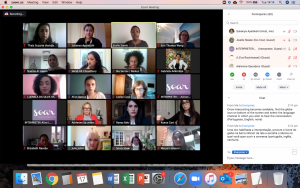


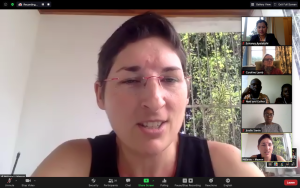

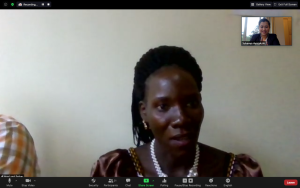
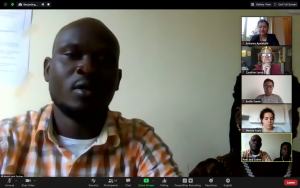
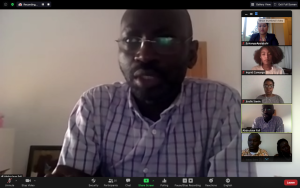


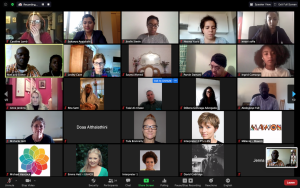
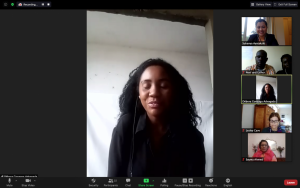
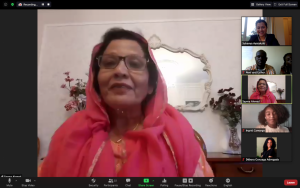












 Writing policy briefs
Writing policy briefs Upholding Excellence: The Concordat to Support Research Integrity
Upholding Excellence: The Concordat to Support Research Integrity Today’s Documentation Will Serve Tomorrow’s Justice
Today’s Documentation Will Serve Tomorrow’s Justice Up2U: New BU academic publication
Up2U: New BU academic publication New BU midwifery paper
New BU midwifery paper ECR Funding Open Call: Research Culture & Community Grant – Application Deadline Friday 12 December
ECR Funding Open Call: Research Culture & Community Grant – Application Deadline Friday 12 December MSCA Postdoctoral Fellowships 2025 Call
MSCA Postdoctoral Fellowships 2025 Call ERC Advanced Grant 2025 Webinar
ERC Advanced Grant 2025 Webinar Horizon Europe Work Programme 2025 Published
Horizon Europe Work Programme 2025 Published Horizon Europe 2025 Work Programme pre-Published
Horizon Europe 2025 Work Programme pre-Published Update on UKRO services
Update on UKRO services European research project exploring use of ‘virtual twins’ to better manage metabolic associated fatty liver disease
European research project exploring use of ‘virtual twins’ to better manage metabolic associated fatty liver disease